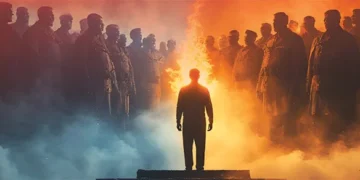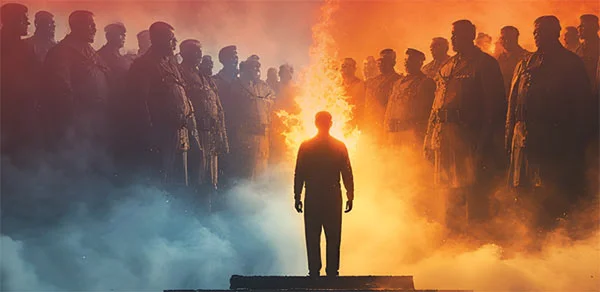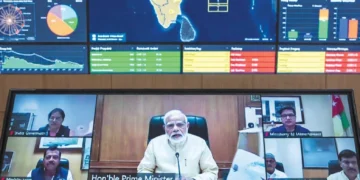 LIFE is a catalogue of uncertainty but there is one thing you can be sure of: much of it will be consumed by a tense debate between freedom and independence. Check with any teenager for clarification; ask any octogenarian for confirmation.
LIFE is a catalogue of uncertainty but there is one thing you can be sure of: much of it will be consumed by a tense debate between freedom and independence. Check with any teenager for clarification; ask any octogenarian for confirmation.
The origin story in the Abrahamic tradition turns this conflict into an admonition and then a metaphor of faith. Eve and Adam had the best address in the universal town, but were tempted by the fruit of independence. Life on earth, a turbulent byproduct, was born from this Original Sin. God kept control through a simple mechanism: death is arbitrary, whimsical and certain.
Almost every religion is structured around the return to eternal dependence on God with Paradise or Nirvana, the land without suffering, as quid pro quo. Life, chosen by the free will of the created, is sufferance. Beware, as the sages say, of what you want; you might get it. Is death the ultimate liberation from independence?
A practical question
Julius Caesar was a workaholic, like all ambitious warriors. The Roman historian Plutarch reports that he was signing papers during dinner with friends on March 13, 44 BCE when the conversation turned to a practical question, inevitable in the company of those who live by the sword: Which was the best way to die? Caesar looked up and said: “Unexpectedly.” He understood the horrors of the cusp before the inevitable. The next morning some 40 Senators sent him into oblivion in his preferred way. Death cuts the chains that anchor life. A fortunate few have golden chains but that does not stop them from being chains.
From the beginning of recorded social organisation human beings have created political space around the cherished ambition of collective independence. Geography encouraged fragmentation and identity evolved through kinship and language; war was an enthusiastic consequence. Power was soon measured by the success of aggression up to the age of empires, colonies and neo-colonies. History became a glorified record of those who destroyed a neighbour’s independence, or went further, dressing expansion as some form of benevolence.
Totalitarian state
The ultimate con was sanctioned by priests, who crowned the wretched victims of despotism with the halo of martyrdom. Just a hundred years ago, the term ‘totalitarian state’ was first used to describe Mussolini’s Fascist state in Italy, and he was benign compared to Germany’s Hitler. The dictator, always preening in ideological feathers, exercised complete control over everything from national law to individual morality. The dependence of the people upon this demigod was extolled as the highest expression of public morality.
Liberty as an individual right is a recent virtue, which found its feet in Asia and Europe only after the defeat of the colonial and totalitarian state. The consequences were transformative: adult franchise democracy in a republic, gender emancipation, poverty elimination, a more equitable world order. Individual freedom is not an absolute right, but that does not make it less potent or infructuous. By the measurement of history, the concept is still a toddler, so a large section of the contemporary world has still not been able to get the balance right. A doctrine of benevolent dictatorship has been used to deny citizens freedom in many nations on the pretext that stability, survival and economic benefits are more important.
Convenient scapegoat
Democracy is a convenient scapegoat. It is another matter that empirical evidence confirms that dictators do not deliver but the idea of an absolute monarch, which has been at the heart of governing ethos through the story of mankind, became the familiar answer to any crisis. It is never easy to be persuasive about as radical a concept as individual freedom. The French Revolution of 1789 did not make the French free.
They scuttled back to monarchy, giving their military hero Napoleon a brief glimpse of feudal glory, before settling for a resurrection of the dynasty they had beheaded.
France went on to create a colonial empire which ended only after two vicious wars, in Algeria and Vietnam. But the French still do a pretty good annual parade in Paris around liberty, equality and fraternity, in which there is no mention of the fact that French women did not get the franchise till 1944. The security blankets of monarchy or religious identity have their market. India, which ended the era of European colonialism by demolishing British rule in 1947, could have become the role model for modernity as a united, multicultural, multi-religious democracy. But this revolutionary manifesto managed to achieve only a partial victory.

































